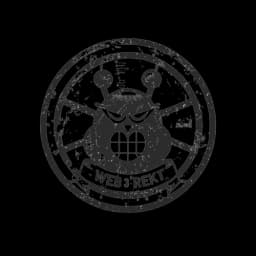BarnBridge SEC Settlement
BarnBridge DAO settles with SEC for $1.7 million, agrees to stop selling crypto bond product BarnBridge DAO, along with its founders Tyler Ward and Troy Murray, has reached a settlement with the Securities and Exchange Commission (SEC), agreeing to pay more than $1.7 million. The settlement stems from charges brought against BarnBridge for failing to register the offer and sale of its cryptocurrency product, SMART Yield bonds. This settlement underscores the growing regulatory scrutiny facing decentralized finance (DeFi) projects and their interactions with traditional securities laws. The SEC alleged that BarnBridge marketed and sold structured crypto asset securities, referred to as SMART Yield bonds, without the required registration. According to the SEC, these bonds were comparable to asset-backed securities and were promoted to the public through various channels. Tyler Ward, 34, and Troy Murray, 38, co-founders of BarnBridge DAO, were actively involved in promoting the investment potential and returns associated with SMART Yield. They appeared as guests on multiple YouTube channels focused on decentralized finance, using social media to attract investors to the product. SMART Yield functioned by pooling together cryptocurrencies deposited by investors and utilizing these assets to generate returns, which were then distributed to investors. The SEC, in its statement, emphasized that Ward and Murray actively promoted SMART Yield as an investment opportunity, contributing to the public offering of these crypto asset securities. The SEC's findings led to charges against BarnBridge DAO for violating securities laws, particularly for failing to register the offer and sale of these structured financial products. The regulatory scrutiny surrounding decentralized finance has been intensifying, and the SEC's action against BarnBridge is part of a broader trend of increased oversight in the cryptocurrency space. In July, BarnBridge's attorney, Douglas Park, informed DAO members through Discord that the SEC was conducting an investigation. Following this revelation, Park recommended halting all work on BarnBridge-related products and advised against compensating individuals for their work with the DAO until further notice. Later in October, BarnBridge initiated a voting process among stakeholders to determine whether Ward and Murray should be given the authority to comply with the SEC's order. The DAO sought input on various aspects, including whether to pay disgorgement as required by the SEC, and whether to sell all tokens permitted and allow Ward and Murray to distribute them. This settlement is a reminder of the SEC's reach into the DeFi space and its commitment to enforcing securities laws, even in decentralized and blockchain-based financial systems. It highlights the challenges faced by DeFi projects in navigating the complex regulatory landscape, as the SEC views many digital assets as falling under its jurisdiction. The SEC has previously taken legal action against decentralized autonomous organizations (DAOs). In an earlier case this year, the SEC accused American Crypto Fed of failing to provide necessary information about its business management and financial condition, including inconsistencies in defining whether its tokens are securities. Gurbir S. Grewal, the director of the SEC’s Division of Enforcement, emphasized that the unregistered offer and sale of structured finance products to retail investors using blockchain technology violates securities laws. This settlement serves as a critical reminder that regulatory requirements apply to entities seeking access to capital markets, regardless of their organizational structure, whether incorporated, decentralized, or autonomous. In conclusion, the settlement between BarnBridge DAO, Tyler Ward, Troy Murray, and the SEC sheds light on the evolving regulatory landscape for decentralized finance. As DeFi projects continue to innovate and explore new financial products, regulatory compliance becomes a crucial aspect to address, ensuring a balance between innovation and investor protection in the ever-changing world of blockchain and digital assets.






